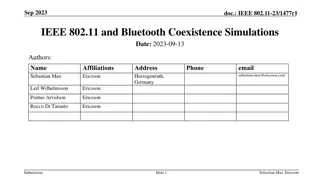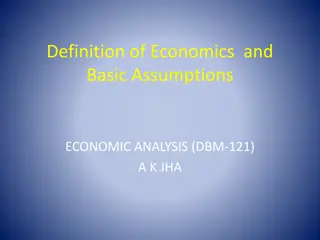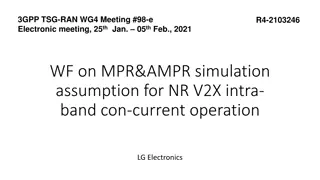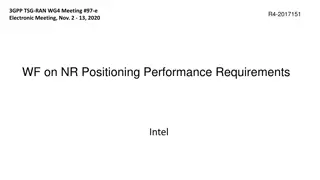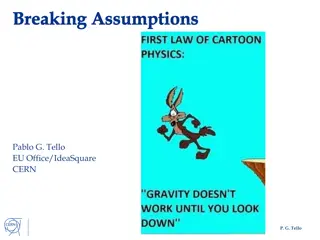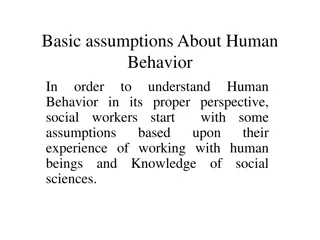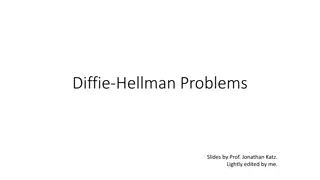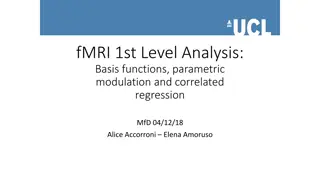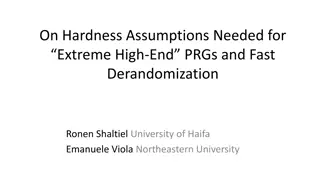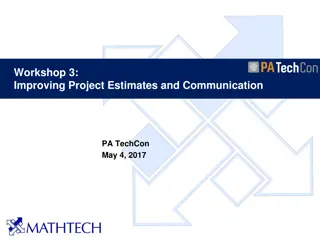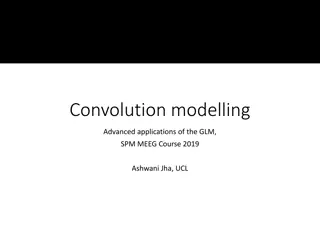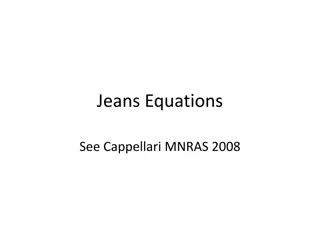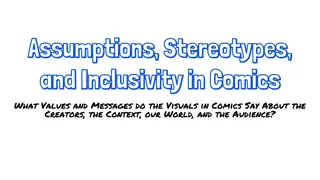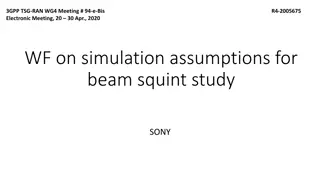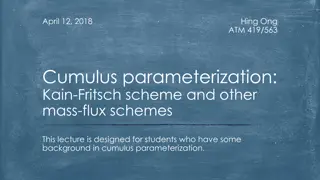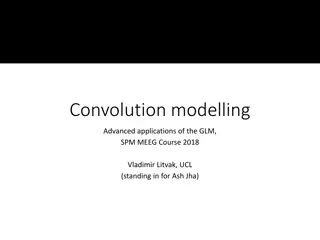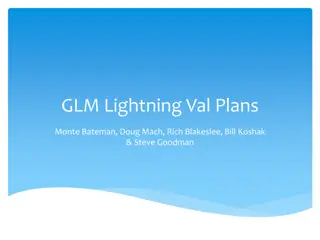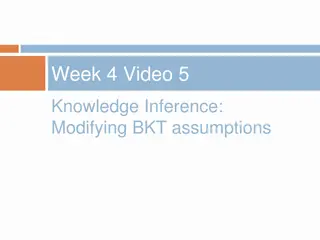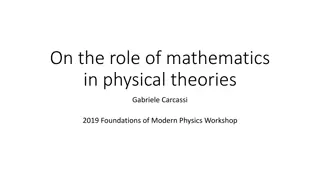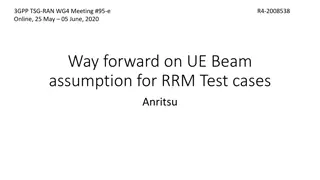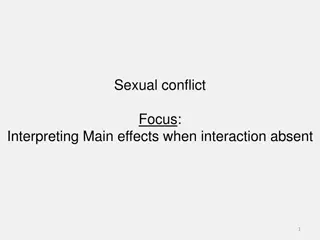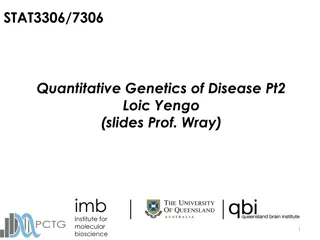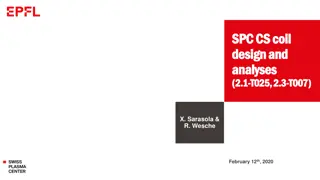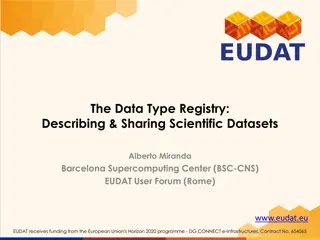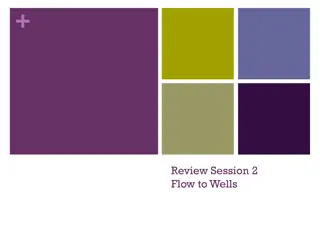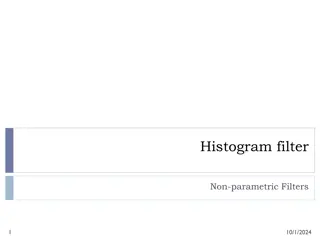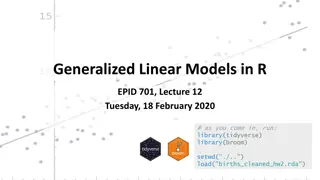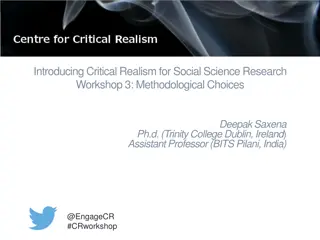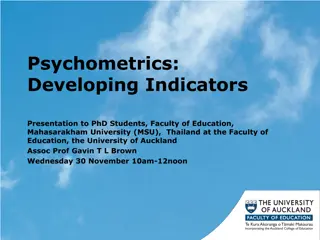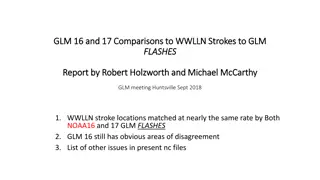IEEE 802.11 and Bluetooth Coexistence Simulations: Assumptions and Models
This document presents simulations on the coexistence of IEEE 802.11 (Wi-Fi) and Bluetooth technologies in the 5.945GHz to 6.425GHz spectrum. It explores various assumptions and models, including spectrum usage, channelization, scenario setups for Bluetooth and Wi-Fi links, and the capabilities of b
6 views • 54 slides
Analyzing Hydrologic Time-Series for Flood Frequency Analysis
This content delves into the methods and assumptions involved in studying hydrologic time-series data for flood frequency analysis. It covers topics such as different types of assumptions, including independence and persistence, and highlights how streamflow data can be analyzed to find annual maxim
7 views • 97 slides
Understanding Economics: Definitions and Basic Assumptions
Economics is a social science that examines how individuals, businesses, and governments allocate resources to satisfy unlimited wants in the face of scarcity. It involves decision-making processes and the study of human behavior in relation to the allocation of scarce resources. Basic assumptions l
0 views • 9 slides
Overview of RF Architecture and Waveform Assumptions for NR V2X Intra-Band Operation
In the electronic meeting of 3GPP TSG-RAN-WG4, discussions were held on the RF architecture and waveform assumptions for NR V2X intra-band operation in band n79. Various options and recommendations were presented regarding RF architecture, antenna architecture, and waveform definitions for efficient
1 views • 7 slides
3GPP TSG-RAN WG4 Meeting #97-e Summary
The 3GPP TSG-RAN WG4 Meeting #97-e held an electronic meeting to discuss NR positioning performance requirements. Agreements were made in the first round, with discussions ongoing in the second round. The work plan focuses on performance parts based on SA testing, with a detailed WP available in the
1 views • 11 slides
Unlocking Creativity and Innovation: Lateral Thinking vs Logical Thinking
Embrace the power of lateral thinking to challenge assumptions, generate new possibilities, and break free from traditional logic. Discover how logical thinking and lateral thinking differ in their approach to problem-solving, and learn how to leverage both methods to spur creativity and innovation.
1 views • 35 slides
Key Assumptions About Human Behavior for Social Workers
Human behavior is purposeful, meaningful, driven by conscious and unconscious motives, influenced by multiple factors, and shaped by early life experiences. Social workers rely on these assumptions to understand human behavior effectively.
0 views • 6 slides
Understanding Diffie-Hellman Problems in Cryptography
Exploring Diffie-Hellman assumptions and problems including Computational Diffie-Hellman (CDH) and Decisional Diffie-Hellman (DDH). Discusses the difficulty of solving the DDH problem compared to CDH and discrete logarithm assumptions. Covers examples and implications of these cryptographic challeng
0 views • 6 slides
Understanding fMRI 1st Level Analysis: Basis Functions and GLM Assumptions
Explore the exciting world of fMRI 1st level analysis focusing on basis functions, parametric modulation, correlated regression, GLM assumptions, group analysis, and more. Dive into brain region differences in BOLD signals with various stimuli and learn about temporal basis functions in neuroimaging
0 views • 42 slides
Developing Strategic Thinking Skills through Comprehensive Analysis
Strategic thinking involves challenging assumptions, understanding the whole picture, and exploring new ideas. By shadowing to gather insights and understanding current workflows, barriers, and assumptions, one can develop a system view and experiment with innovative solutions to drive strategic obj
0 views • 5 slides
Alternative Depreciation Method for Modeling PPE Balance
In the context of modeling the balance of existed Property, Plant, and Equipment (PPE) for start-ups and fast-growing IT companies, the challenge lies in determining retirement rates with limited information. The approach involves making assumptions about starting retirement levels and growth rates,
4 views • 11 slides
Navigating Statistical Inference Challenges in Small Samples
In small samples, understanding the sampling distribution of estimators is crucial for valid inference, even when assumptions are violated. This involves careful consideration of normality assumptions, handling non-linear hypotheses, and computing standard errors for various statistics. As demonstra
0 views • 19 slides
Insights on Hardness Assumptions for Extreme PRGs
BPP=P requires certain complexity theoretical hardness assumptions. Recent advancements aim for extreme high-end PRGs based on stronger assumptions, presenting challenges in black-box proofing and loss factors. The cost of hybrid arguments for PRGs is analyzed, highlighting the need for qualitativel
2 views • 14 slides
Santa Monica College 2022-2023 Q1 Budget Update Presentation
This presentation outlines the budget update for Santa Monica College for the first quarter of 2022-2023. It covers major assumption changes, revenue assumptions, details of unrestricted and restricted general funds, including the Learning Aligned Employment Program and COVID-19 Recovery Block Grant
3 views • 15 slides
GOES-R Airborne Science Validation Field Campaign Overview
The GOES-R field campaign aimed to validate ABI and GLM products post-launch by coordinating the high-altitude NASA ER-2 aircraft with ground-based reference data over various Earth targets from March 21 to May 17, 2017. The primary objective was the independent validation of ABI spectral radiance o
1 views • 11 slides
Effective Project Estimation and Communication Strategies
Learn about the importance of accurate project estimates, common estimation pitfalls, key components of estimates, documenting assumptions, typical assumptions to consider, and understanding the difference between effort and duration in project planning. Enhance your project management skills for be
0 views • 22 slides
Advanced Applications of Convolution Modelling in GLM and SPM MEEG Course 2019
Addressing difficulties in experimental design such as baseline correction, temporally overlapping neural responses, and systematic differences in response timings using a convolution GLM, similar to first-level fMRI analysis. The course focuses on the stop-signal task, EEG correlates of stopping a
0 views • 21 slides
Understanding High Net Worth Client Gift Planning and Philanthropy
Explore the role of trusted advisors in philanthropy, the disconnect between HNW clients and advisors, philanthropic motivations and assumptions, gift planning for the future, and how financial, social, and personal factors influence giving decisions. Gain insights into primary motivators such as do
1 views • 18 slides
Understanding Jeans Equations in Stellar Dynamics
The Jeans Equations and Collisionless Boltzmann Equation play a crucial role in describing the distribution of stars in a gravitational potential. By applying assumptions like axial symmetry and spherical symmetry, these equations provide insights into the behavior of large systems of stars. Despite
0 views • 7 slides
Understanding Assumptions, Stereotypes, and Character Depth in Comics
Assumptions and stereotypes play significant roles in comics, influencing how creators shape characters and convey messages. By examining round versus flat characters and the impact of stereotypes, we gain insights into the values and beliefs reflected in comic visuals and their implications for cre
0 views • 11 slides
Review on Wells and Consumptive Use Assumptions
This review focuses on projections and assumptions related to permit-exempt wells, growth rates, and baseline consumptive use in subbasins. Historical growth rates from 1999 to 2018 are analyzed to forecast future well connections. Growth allocation within subbasins is based on buildable lands analy
0 views • 13 slides
Simulation Assumptions and Performance Degradation Study on Beam Squint in 3GPP Meeting
Background on beam squint in conducted power of transmitted CCs causing radiative domain impairment and gain droop, with a problem statement on degradation of CC2 spherical coverage when CC1 and CC2 are separated by frequency. The study involves refined simulation assumptions to quantify radiative d
0 views • 7 slides
Understanding Cumulus Parameterization and Mass-Flux Schemes in Atmospheric Science
Explore the significance of mass-flux schemes in cumulus parameterization, their interaction with grid-scale microphysics, and the key elements and assumptions involved. Learn about the objectives, components, and limitations of classical cumulus schemes for atmospheric modeling. Gain insights into
0 views • 23 slides
Advanced Applications of GLM and SPM in M/EEG Course 2018
This course delves into utilizing Convolution GLM to address challenges such as baseline correction, overlapping neural responses, and systematic response timing differences in EEG experiments. It focuses on the stop-signal task, EEG correlates of movement stopping, and MEG data analysis. The course
0 views • 26 slides
Lightning Validation Tools and User Feedback in Lightning Data Analysis
GLM Lightning Validation Plans by Monte Bateman, Doug Mach, Rich Blakeslee, Bill Koshak, and Steve Goodman involve assessing the accuracy and reliability of lightning data tools. Users find value in these products for decision-making in outdoor events involving lightning concerns. The tools help in
1 views • 14 slides
Enhancing Bayesian Knowledge Tracing Through Modified Assumptions
Exploring the concept of modifying assumptions in Bayesian Knowledge Tracing (BKT) for more accurate modeling of learning. The lecture delves into how adjusting BKT assumptions can lead to improved insights into student performance and skill acquisition. Various models and methodologies, such as con
0 views • 51 slides
Understanding Economic Models: Assumptions, Deductive Reasoning, and Logical Fallacies
Economic models utilize deductive reasoning to simplify real-world economic relationships. Assumptions vs. implications are key components, where assumptions reflect reality or are simplifying. This process helps identify conditions for specific outcomes to occur and distinguishes between consequent
1 views • 17 slides
The Role of Mathematics in Physical Theories - Insights from Gabriele Carcassi's Work
Exploring the technical function of mathematics within physical theories, Gabriele Carcassi's research delves into developing a general mathematical theory of experimental science. This theory aims to derive the basic laws of physics from a handful of physical principles and assumptions, providing a
0 views • 50 slides
Update on UE Beam Assumption for RRM Test Cases in 3GPP Meetings
The latest developments in 3GPP meetings regarding UE beam assumption for RRM test cases are outlined. Discussions include the need for UE beam type assumptions, updates to test cases for FR2, and upcoming presentations focusing on specific test cases and beam assumptions per test group. Test purpos
0 views • 9 slides
Understanding Effects of Sexual Conflict on Female Longevity in Drosophila
Exploring the impact of male ejaculate protein on the lifespan of mated female Drosophila by analyzing egg production, fertility, mating costs, and the interaction between different treatments. Results suggest that fertile and sterile females, as well as those exposed to high-cost vs. low-cost males
0 views • 7 slides
Understanding Quantitative Genetics of Disease - Part 2
This content delves into the quantitative genetics of disease, exploring concepts like liability threshold models, phenotypic liabilities, normality assumptions, and genetic factors' contribution to disease variance. It examines how disease prevalence and heritability correlate with affected individ
0 views • 24 slides
SPC.CS Coil Design and Analyses: Requirements, Assumptions, and Methodology
This document discusses the design and analysis of SPC.CS coil, focusing on maximizing magnetic flux, survival under fatigue conditions, and materials used for different field layers. It covers requirements, assumptions, and the methodology for uniform current density solenoid design. The study aims
0 views • 15 slides
Understanding the Importance of Data Type Registry in Scientific Data Sharing
Describing and sharing scientific datasets can be challenging due to the complexity and implicit assumptions involved. The Data Type Registry (DTR) addresses this issue by providing a systematic approach to define and record data assumptions, making data more accessible and reusable. Through DTR, da
0 views • 22 slides
Groundwater Flow: Assumptions, Solutions, and Tests
Explore basic assumptions, solutions, and tests related to groundwater flow in aquifers, including confined and unconfined scenarios. Learn concepts such as Thiem solution, Theis solution, and data analysis from pumping tests.
0 views • 17 slides
Understanding Robot Localization Using Kalman Filters
Robot localization in a hallway is achieved through Kalman-like filters that use sensor data to estimate the robot's position based on a map of the environment. This process involves incorporating measurements, updating state estimates, and relying on Gaussian assumptions for accuracy. The robot's u
0 views • 26 slides
Understanding Patterns of Inheritance and Genetic Disorders
Explore the fascinating world of patterns of inheritance through pedigrees, analyzing traits in humans, and understanding disorders determined by single genes. Delve into autosomal recessive diseases, autosomal dominant disorders, Mendel's assumptions, and exceptions to those assumptions. Discover p
0 views • 29 slides
Association Between Maternal Education and Maternal Age in GLM Analysis
In this lecture on Generalized Linear Models in R, the focus is on examining the association between maternal education and maternal age using a dataset on births. The process involves creating a factor variable for maternal education levels, filtering a smaller dataset, visualizing the univariate r
0 views • 43 slides
Exploring Critical Realism for Social Science Research: Methodological Perspectives
Delve into the methodological choices and key concepts of Critical Realism for social science research, including the nature of reality, researcher-inquirer relationships, and assumptions about human agency. Learn about the domains of reality in Critical Realism and the distinction between qualitati
0 views • 10 slides
Understanding Assumptions in Measurement and Psychometrics
Explore the fundamental assumptions in measurement, highlighting the interplay between reality, chance, and statistical significance. Learn how measurements are influenced by error, patterns, and the role of calibrated tools in quantifying properties. Delve into the intriguing realm of psychometrics
0 views • 26 slides
Comparison of GLM-16 and GLM-17 with WWLLN Strokes
The report by Robert Holzworth and Michael McCarthy discusses the comparison of GLM-16 and GLM-17 with WWLLN strokes, highlighting areas of agreement and disagreement. Methods for matching GLM and WWLLN events are explored, focusing on time and distance considerations. The analysis shows that NOAA-1
0 views • 16 slides
